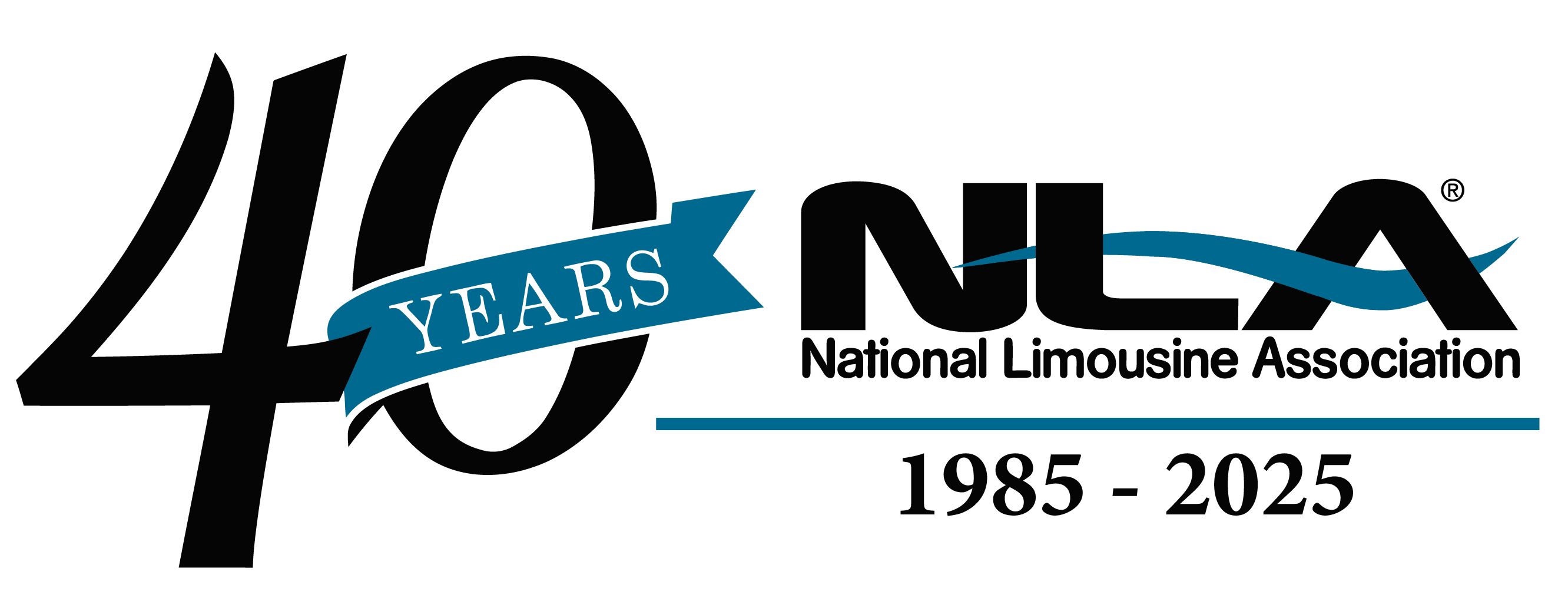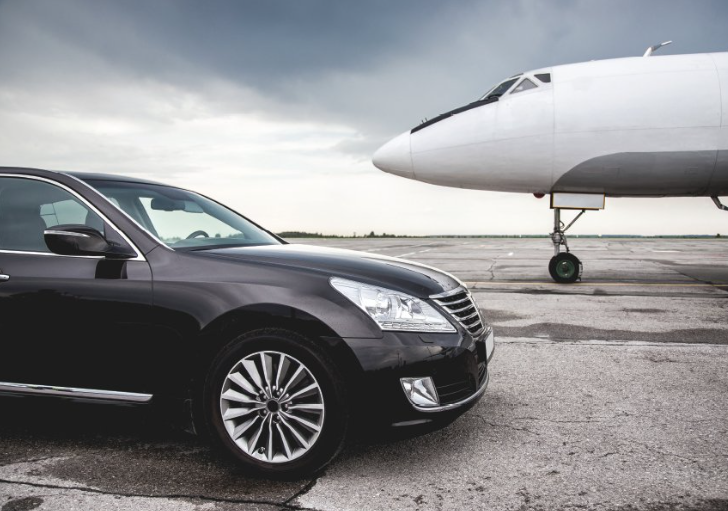The ground game for business travelers flying private demands dependable partners from take-off to landing and beyond.
When travel programs rely on private aviation for corporate missions, one challenge is solving for that last mile, ensuring the ground transportation provided offers travelers the best, safest and most efficient way to get from the FBO to their ultimate destination. This could mean partnering with rental car companies, utilizing private limousine or door-to-door white-glove services, using rideshare companies, or working with the end destination directly.
That “last mile” is just as important as the rest of the trip that came before it, notes Jeanne Muzio, senior vice president of sales at Air Partner. “Ensuring a smooth transfer from the plane to the final destination is vital for us because we want to do our best to provide a positive passenger experience at all times,” she says. “Even if we’ve serviced a great flight experience to our clients, if the ground transportation provider is lacking, the passenger’s view on the whole experience can be impacted simply because of that one touchpoint.”
Most private aviation companies don’t have their own ground component. “That’s the case because it’s not a core piece of their business,” Muzio says. “It’s hard for private aviation companies to manage that component and it wouldn’t be responsible business for them, especially when working with those third-party vendors is efficient.”
Jeff Rose, president and CEO of Attitude New York, a chauffeured transportation service in the New York metro area, cites the reason most private aviation companies don’t have their own ground transportation component: It’s very hard to do well, it’s time consuming, and it’s not all that profitable compared to aviation services.
After all, Rose cautions, no business traveler wants to get stranded at an airport. If the last mile is a disaster, that’s all they will remember, so it’s important to choose an established transportation company that takes ownership of the work.
“The private aviation companies’ reputations depend on the satisfaction of their passengers and they will gravitate towards the most trustworthy services,” explains Adam Miller, national director of corporate relationships for rental car provider Go Rentals. “They build personal relationships with the support teams and increase communication when necessary to identify the passenger specific preferences.”
Private aviation looks to offer efficient and hassle-free service, says Sascha Meskendah, chief revenue officer for Blacklane. The last mile is as important as all the others, he says, so it’s critical that reliable solutions exist. “Blacklane helps to make this as seamless as possible,” Meskendah says, explaining his company’s presence in 50 countries allows for reliable chauffeur-type service on a global scale. “The experience of private aviation is great and you want to extend that through the end of the journey.”
Establishing Partnerships
While ground transportation is the most common avenue passengers take for the last mile, it is not always part of the travel program. That means the relationship/partnership that aviation companies have with the suppliers is critical because they, like the operator of the aircraft, are expected to provide consistent and exceptional service.
“Relationships are everything, and because of that, we don’t want every ground transportation experience to be with a different provider,” Muzio says, adding, “At Air Partner specifically, we work with a limited number of exceptional providers who we know run sound operations and provide exceptional service. Those relationships come with years of experience working together and gaining trust. Having quality relationships like this allow us to be confident in conversations with customers.”
Rick Versace, president and CEO of A1A Global Ground, which provides ground transportation to and from FBOs all over the world for private aviation and jet charter clients, notes in the private aviation space, expectations for quality, convenience and seamless service are exceptionally high.
“The best fixed base operators understand this and often establish preexisting accounts with premium luxury ground transportation companies,” Versace says. “Travel managers are the go-to people for problem-solving. They are expected to quickly address any issues that arise, whether in-flight or on the ground, ensuring minimal inconvenience to the traveler. They need to know that the ground transportation company they work with never says no and will work with them when challenges come up.”
The strategic partnership is important for several reasons, Versace notes, starting with a seamless integration of services: “By having prearranged relationships with top-tier ground transportation providers, FBOs can ensure a smooth transition from air to ground travel,” he says.
Plus, such partnerships often allow for a higher degree of customization and personalization in ground services, mirroring the bespoke nature of private aviation. Personalizing choices like vehicle preferences, onboard amenities or tailored routes significantly enhances the overall travel experience.
Eric Okon, chief operating officer for the BLS Company, notes that a mature and well-organized travel program always has a ground transportation component. “When partnering with our clients, transparency and communication is key,” Okon says. “Consistent meetings are essential to a successful relationship where you talk about the good and also areas that need improvement. Travel can be messy sometimes; there are many components that could derail a ride – traffic, weather, a flat tire. Having candid conversations about the reality of ground travel makes for a great program.”
Therefore, having sound, trustworthy relationships with ground transportation providers is something all private aviation companies should strive for. “Take the time to invest in those relationships and let ground transportation suppliers know that there will be a valuable relationship formed if the following are guaranteed: Constant communication, full transparency and reliability,” Muzio says.
“The relationships with our partners are very strong,” Miller says. “Go Rentals is the preferred rental car provider for private aviation across the US. By having deep relationships with our travel partners, we learn who their travelers are and anticipate their needs. This means knowing their preferred FBO, preferred vehicle, favorite beverage to be placed in the vehicle, and tail numbers, for example.”
Miller notes that another consideration is the needs of the crew, since pilot, co-pilot and corporate flight attendants also require ground transportation for overnight trips. “The crew tend to have budgetary constraints on their ground transport, leaving only rideshare and rental car as options,” he explains. “A well-equipped business aviation rental car provider will have a diverse fleet providing options from price-leading to high luxury. This ensures that the entire plane can utilize one provider who meets the individual needs of each person on the plane.”
Understanding Options
Today’s travel managers have corporate clients who are better informed and have higher expectations, making ground transportation a critical link in the whole travel ecosystem. This involves leveraging technology and sophisticated travel management systems that integrate flight tracking, ground transportation scheduling and client communication.
For example, Go Rentals is on the global distribution system, so corporate travel managers can book cars that will be available directly at the FBO site, making it convenient for the traveler and providing greater visibility into the booking and payment.
From Air Partner’s point of view as a global provider of aviation services, the most common and efficient way to accommodate is to provide chauffeured automobiles. “It’s a safe and dependable option as we have developed strong relationships with vendors and require certain standards to be met to ensure quality service,” Muzio says, adding that helicopters are growing in popularity in large metropolitan areas. Rental cars are another option, Miller points out, either through a corporate program’s negotiated rates or with its TMC.
These relationships allow for quick arrangement of ground transportation, often with little notice, while maintaining consistency in quality and experience. “Aligning with premium luxury ground companies guarantees that the level of quality and luxury experienced in the air is matched on the ground,” Versace says. “This consistency is crucial in providing a holistic high-end travel experience.”
Okon advises that if there only a few travelers, a luxury sedan or crossover such as a Cadillac XT5 or the all-electric Mercedes EQB are nice options. “The full-size SUV is by far the most popular choice – Escalades, Navigators, Suburbans are all reliable options for up to five or six passengers with lots of luggage,” he says. “Of course, for large groups, luxury 14 passenger Mercedes Sprinters with captain’s chairs are a great option and mini coaches for parties of 20-plus are good if everyone wants to stay together.”
Safety and Privacy
When the actual operator (the driver and car) is independent from the vendor, you never know the level of compliance. Who is responsible for your ride? Do they have proper insurance? Has the chauffeur had a background check?
That’s why travel managers and aviation companies must do their due diligence and duty of care on the choices they make. “If FBOs are going to make providing ground transportation a part of their services, either on their own – extremely rare – or through third-party vendors, they must take the time to vet their suppliers and choose said vendors not on the basis of maximum profit, but maximum safely and service,” Rose says.
Given that the ground component is typically handled by a different company, there are specific measures and considerations that private aviation firms can employ to ensure they are putting their customers in reliable and safe hands. “A key aspect of this is the involvement in the National Limousine Association (NLA), which plays a vital role similar to a ‘Good Housekeeping Seal of Approval’ for ground operators,” Versace says. “Membership in the NLA is a strong indicator of a company’s commitment to industry standards, safety and professionalism.”
Blacklane partners with numerous aviation companies and offers flexible hours, knowing that private planes don’t always stick to schedules, and this guarantees that a car will be waiting no matter when the travelers arrive. “What is extremely important to us is being compliant with local rules and regulations and offering one consistent service, while being safe and reliable,” Meskendah says. “We make sure everyone in the Blacklane network is a professional chauffeur with all the licenses in place. And we have non-disclosure agreements so there’s no risk of revealing who is going from where to where. We always comply with privacy.”
Most customers prioritize the proximity of the ground transportation to the runway they land on. If they have a chauffeur, if that car can be right next to the plane, it helps protect their privacy and it’s more efficient. “At the end of the day, time is money, and providing efficient and timely service is vital,” Muzio says.
“The most important risk is punctuality,” Miller agrees. “Planeside delivery is the proper transition in business aviation.” This means the vehicle is brought on the ramp next to the plane for the passengers to get directly into the vehicle. While certain airfields may prohibit this, Miller advises the vast majority of FBOs allow it. Having the vehicles ready prior to arrival as well as tail tracking is paramount to the success of the business trip, he says, adding, “Our guarantee is that the rental is on-time or it’s free.”
Rose says travelers need to consider comparative value when it comes to the ground transportation options. “So many private flyers spend tens, or even hundreds of thousands of dollars flying private and then try to save $50 on the car,” Rose says. “If you are worth the money it takes to fly private, spend a few dollars more on a responsible, reliable, trustworthy transportation company,” he advises, “as opposed to a provider who denies that they are a transportation company – and their claims of being a tech company.”
Private flights take care of the air travel stressors, and having a reliable ground transportation system in place will keep the journey on a successful path.
Image credit: Shutterstock

